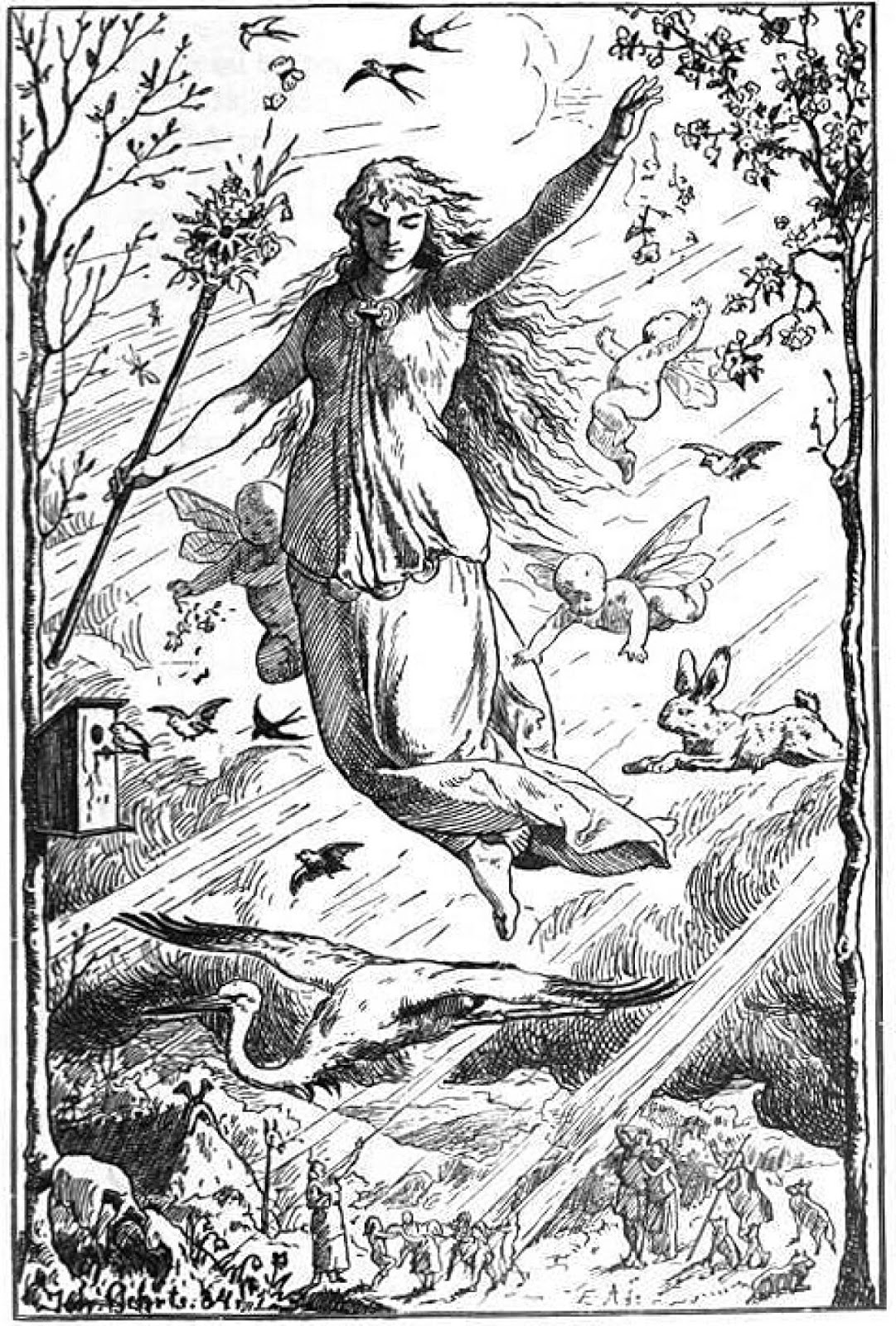Easter/Ostara by Johannes Gehrts 1884/1901
"In olden time the English people -- for it did not seem fitting to me that I should speak of other people's observance of the year and yet be silent about my own nation's -- calculated their months according to the course of the moon. Hence, after the manner of the Greeks and the Romans (the months) take their name from the Moon, for the Moon is called mona and the month monath.
The first month, which the Latins call January, is Giuli; February is called Solmonath; March Hrethmonath; April, Eosturmonath; May, Thrimilchi; June, Litha; July, also Litha; August, Weodmonath; September, Halegmonath; October, Winterfilleth; November, Blodmonath; December, Giuli, the same name by which January is called. ...
Nor is it irrelevant if we take the time to translate the names of the other months. ... Hrethmonath is named for their Goddess Hretha, to whom they sacrificed at this time. Eosturmonath has a name which is now translated "Paschal month", and which was once called after a Goddess of theirs named Eostre, in whose honour feasts were celebrated in that month. Now they designate that Paschal season by her name, calling the joys of the new rite by the time-honoured name of the old observance. Thrimilchi was so called because in that month the cattle were milked three times a day..."
-Bede, De Ratione Temporum 15. Written in the year 725 CE.. (The Reckoning of Time, tr. Faith Wallis, Liverpool University Press 1988, pp.53-54)
The first month, which the Latins call January, is Giuli; February is called Solmonath; March Hrethmonath; April, Eosturmonath; May, Thrimilchi; June, Litha; July, also Litha; August, Weodmonath; September, Halegmonath; October, Winterfilleth; November, Blodmonath; December, Giuli, the same name by which January is called. ...
Nor is it irrelevant if we take the time to translate the names of the other months. ... Hrethmonath is named for their Goddess Hretha, to whom they sacrificed at this time. Eosturmonath has a name which is now translated "Paschal month", and which was once called after a Goddess of theirs named Eostre, in whose honour feasts were celebrated in that month. Now they designate that Paschal season by her name, calling the joys of the new rite by the time-honoured name of the old observance. Thrimilchi was so called because in that month the cattle were milked three times a day..."
-Bede, De Ratione Temporum 15. Written in the year 725 CE.. (The Reckoning of Time, tr. Faith Wallis, Liverpool University Press 1988, pp.53-54)
Source:
https://commons.wikimedia.org/wiki/File:Ostara_by_Johannes_Gehrts.jpg
Quote:



Comments
Post a Comment